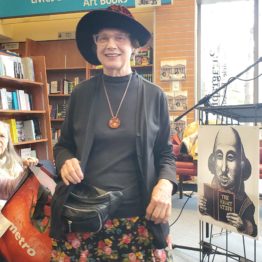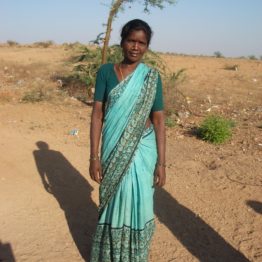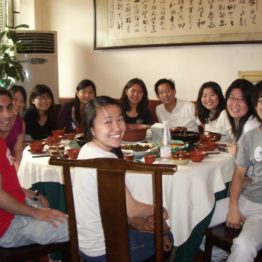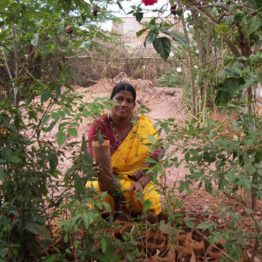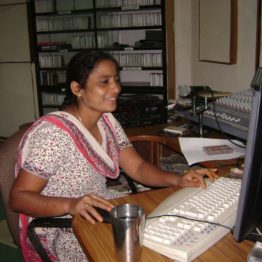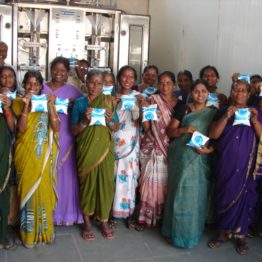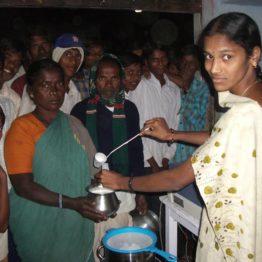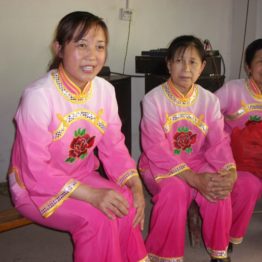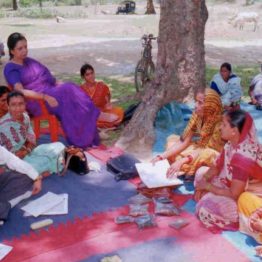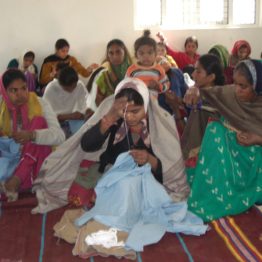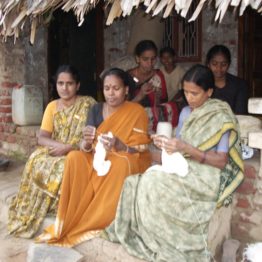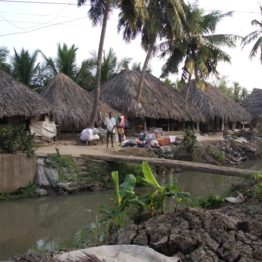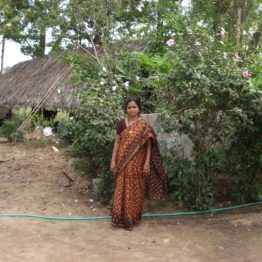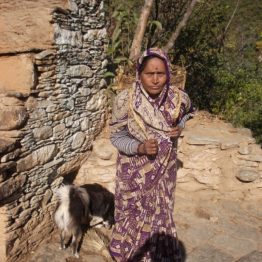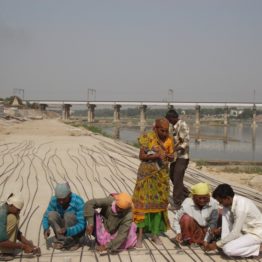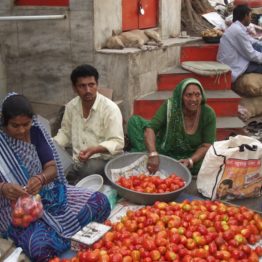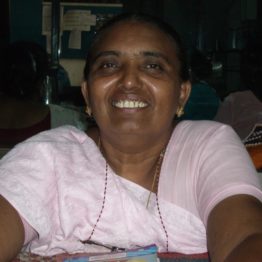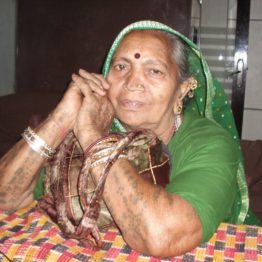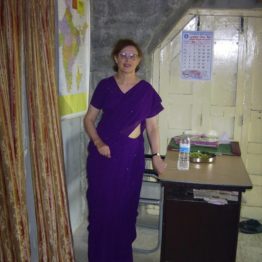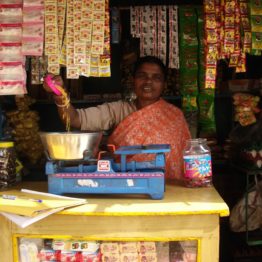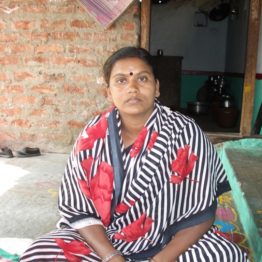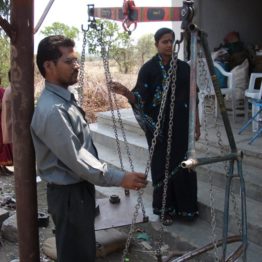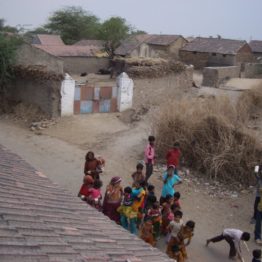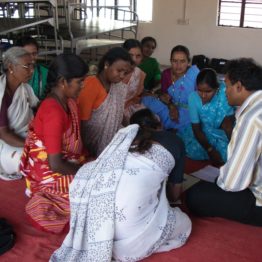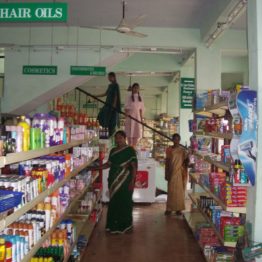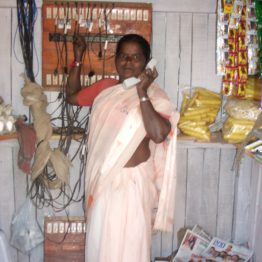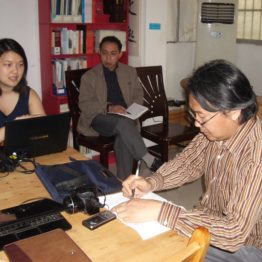
China Team leader Amy Liu talks to the leader of a Sichuan NGO that will start a microcredit program with a start-up fund from the students.
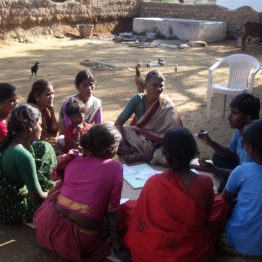
Women meet to discuss taking loans under the NGO Ankuram Sangamam Poram with 80,000 women in 1500 villages in the state of Andhra Pradesh.
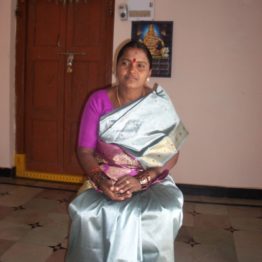
Lakshamamma headed a village self-help group where women took loans. Now she is mayor of her village of Cherlapatelguda.
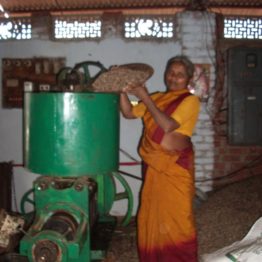
Shammamma heads a women’s collective that has created a factory that presses oil from neem seeds for sale as an organic pesticide.
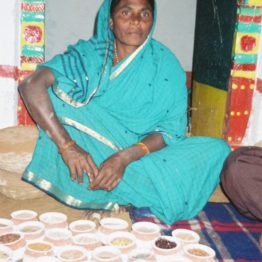
Seedkeeper Anjamma made the deserts bloom by taking microcredit loans for organic farming. She belongs to the Deccan Development Society (DDS) with 5,000 Dalit (untouchable caste) women.
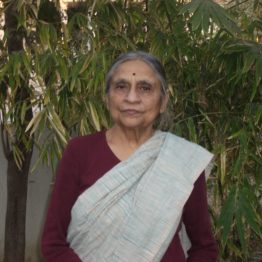
In the state of Gujarat Ela Bhatt started the Self-Employed Women's Association (SEWA) that now has one million members.
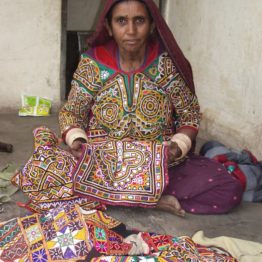
Master embroiderer Puriben of SEWA helped start a village-based embroidery company that has drawn families out of poverty.
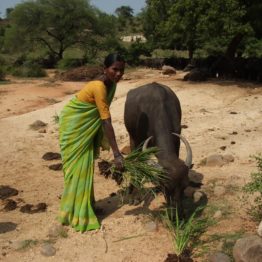
Milk buffalo owner Poorova is one of 15,000 women that have started their own dairy through Gram Abhyudaya Mandali NGO.
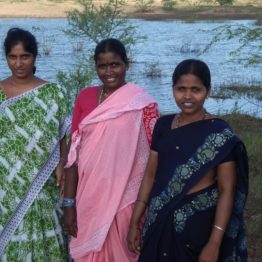
Gram cooperatives composed mostly of Dalit women took a lease to run a municipal sand pit and made money.
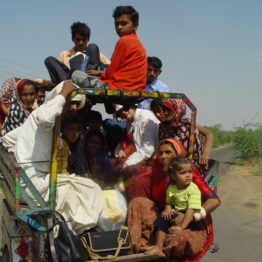
Sheila is squashed into the front in a white shirt, and hanging off the back is Puriben in the red top with her grandchild, en route for a day's work travelling to supervise the work of local embroiderers in the villages she is responsible for.
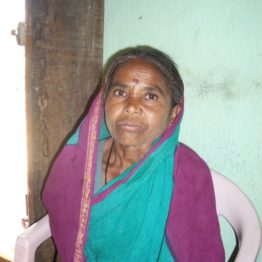
Social Change goes along with women meeting in groups for loans. An organization fighting prostitution helped Kista join a microcredit group. She took loans to develop farmland.
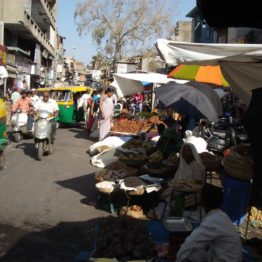
SEWA street vendors intend to buy land and start malls that sell organic produce from SEWA farm women.
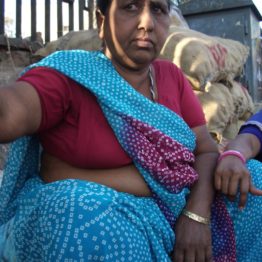
Shantaben Pakmar is a vegetable vendor leader that had to fight police harassment of vendors on the streets of Ahmedabad.
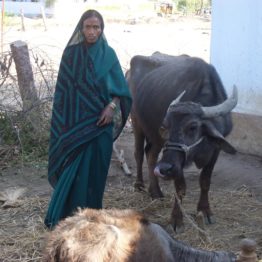
Punnemma was a starving day labourer. Now, under Swayam Krishi Sangham (SKS) Microfinance, she runs a mini-farm.
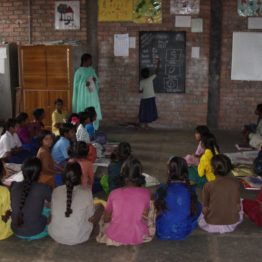
Girl child labourers attend a special 10-month school that prepares them to enter the regular system.
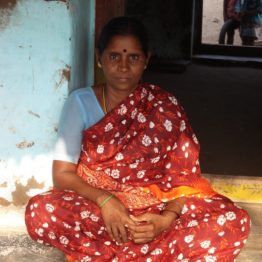
In a fishing village struck by the Tsunami Nagamma has taken a loan to repair her husband's fishing net.
